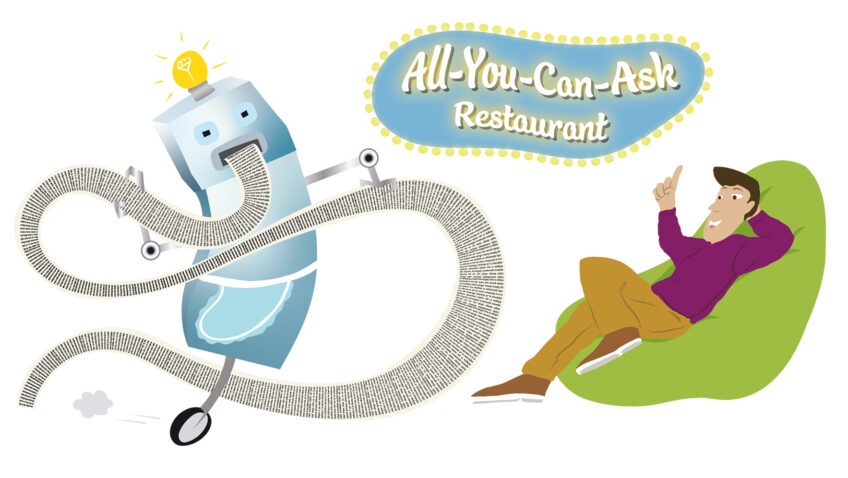Text robot ChatGPT means a revolution for higher education. The program produces complete papers in no time at all. Are lecturers concerned?
Windesheim is experimenting with ChatGPT and thinking about the consequences. The free program can produce a wide variety of texts and even generate software codes. It uses a huge amount of information on the Internet. Large parties such as Google are making similar programs. Students who use it for study assignments can hardly be caught. Is ChatGPT a threat to higher education?
Lvo-lecturer Jaap van der Molen co-organised brainstorming sessions about ChatGPT: “Lecturers should bear in mind that students sometimes do not submit their own work, but a text from ChatGPT. We can’t ban this from education, so let’s use it critically and purposefully.” Van der Molen thinks ChatGPT’s texts are good in terms of paragraph structure, sentence structure and word use. “But when you look closer, you notice that the content is cliché, unworldly or sometimes incorrect. There is a chance that students will be satisfied with these superficial texts and will not bother to write creative and critical texts.” What should lecturers do to prevent cheating with ChatGPT? “The test formats can be adapted, for example more oral tests. The process could also be assessed instead of the end product.” You can ask students to justify how they used ChatGPT to improve their own text. You do have to indicate in advance how they can use the program.”
Judith van der Stelt, writing coach and dyslexia specialist at the Study Success Center Almere, does not expect students who write poorly to suddenly make interesting papers via ChatGPT. Van der Stelt: “If you can’t write, it’s still quite difficult to judge whether the text that the robot creates is okay. Being able to rewrite well requires a greater degree of language skills than writing something yourself.” She expects that Chat-GPT can help students to get an idea about the structure of a text.
Journalism lecturer Bob Bouhuijs says that the arrival of ChatGPT had an impact on the teaching teams and the examination boards. “The core problem is that students can generate non-own texts and present them as their own work, without it being possible for lecturers and examination boards to detect this and to substantiate it legally.” According to Bouhuijs, this means that the assessment must be organized differently. Either the assignments are formulated differently, or given in an exam setting.
“The first-year project assignments at Journalism are designed in such a way that the use of ChatGTP hardly makes sense. Students must use specific sources, do their own research and justify their choices.” According to Bouhuijs, testing differently can be done, for example, through assessments after writing a report, which asks for considerations. “Students who did not write their own text will probably fail.”
Geert van der Wijk is product owner of educational implementation at the IVT department, his team is responsible for the plagiarism software at Windesheim. He expects plagiarism software from supplier Turnitin that recognizes ChatGPT to come out this summer. Windesheim hopes to be able to use this from the start of the new academic year. “We want to accelerate the transition to Turnitin. The new plagiarism software (just like the current one) is offered via an integration with the Brightspace and ANS systems.”
This is a summary of a more extensive article (written in Dutch): Docenten bang voor ChatGPT?
Text: Ernest Mettes
Illustration: Judy Ballast
